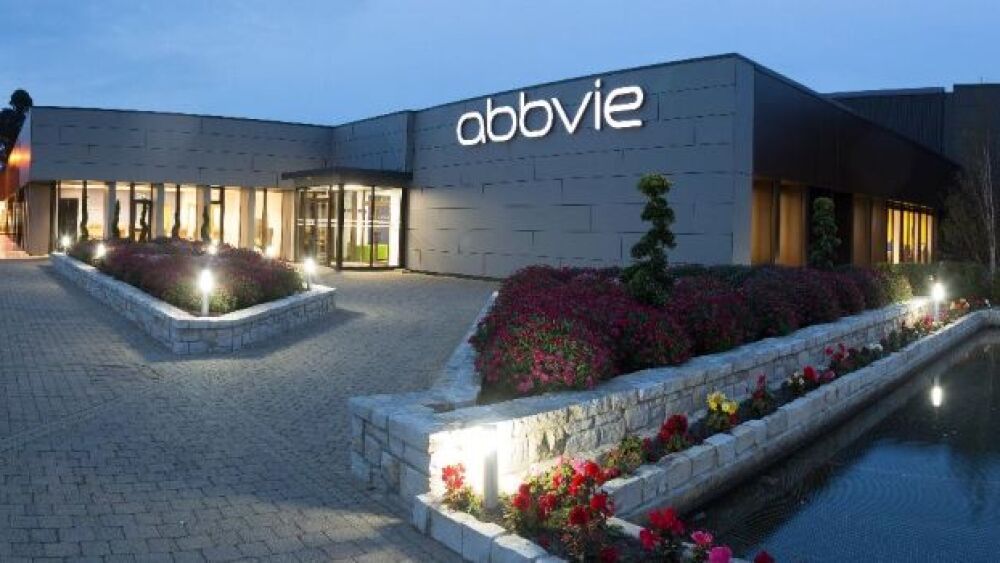In a double data drop Thursday, AbbVie touted two clinical trial wins, for Skyrizi in ulcerative colitis and Rinvoq in systemic lupus erythematosus.
An AbbVie building in the twilight/courtesy of AbbVie_© AbbVie Inc. All rights reserved.
In a double data drop Thursday, AbbVie touted two clinical trial wins. Topline data from the Phase III INSPIRE study showed Skyrizi (risankizumab) met its primary and all secondary endpoints in ulcerative colitis (UC).
Meanwhile, Rinvoq (upadacitinib) aced its Phase II SLEek trial, showing therapeutic potential in systemic lupus erythematosus (SLE).
INSPIRE, a randomized, double-blinded and placebo-controlled trial, enrolled 1,554 patients with moderately to severely active UC. Skyrizi was given at 1,200-mg intravenous doses every four weeks for 12 weeks, after which its efficacy was assessed primarily in terms of clinical remission, as measured by the Adapted Mayo Score.
Skyrizi led to a 20.3% clinical remission rate, which was significantly higher than the 6.2% in placebo comparators, according to AbbVie.
The study’s secondary efficacy endpoints were clinical response, endoscopic improvement and histologic-endoscopic mucosal improvement, all significantly better after Skyrizi treatment, compared with placebo.
The study “demonstrates the potential of risankizumab to serve as an option across inflammatory bowel diseases,” said Edouard Louis, M.D., Ph.D., study investigator, INSPIRE, in a statement.
On the safety front, Skyrizi gave no new signals of concern and displayed an adverse event profile consistent with previous studies across its other indications. Serious adverse events arose in 2.3% of patients treated with Skyrizi, as opposed to 10.2% of placebo counterparts.
There was one fatality in the Skyrizi group, but it was attributed to COVID-19.
Earlier this month, AbbVie released Phase IIIb data for Skyrizi in plaque psoriasis, showing symptom improvements in patients with moderate to severe disease who had previously displayed suboptimal response to IL-17A inhibitors secukinumab or ixekizumab.
Rinvoq Moves to Phase III
Also, on Thursday, AbbVie announced that Rinvoq, given once daily as a monotherapy or combined with a BTK inhibitor, met its primary endpoint in the Phase II SLEek study. Based on this, the company will advance the program to Phase III.
SLEek enrolled 341 patients with moderately to severely active SLE. Treatment efficacy was measured in terms of Rinvoq’s effects on disease activity and steroid dose without worsening the patients’ overall condition or leading to significant disease activity in new organ systems.
The 30-mg dose of Rinvoq was also safe, with a profile consistent with previous studies, according to the press release. No new safety signals arose.
AbbVie is preparing to present these data and analyses at a future medical congress.
These clinical triumphs should help AbbVie weather the impending decline in sales of Humira (adalimumab) as the blockbuster drug starts facing biosimilar competition.
During the 41st J.P. Morgan Healthcare Conference in January, Rick Gonzalez, CEO, said the two medicines are projected to bring in more than $17.5 billion by 2025 and by 2027 and could outpace Humira’s peak revenue together with more than $21 billion in expected sales.
Featured Jobs on BioSpace






